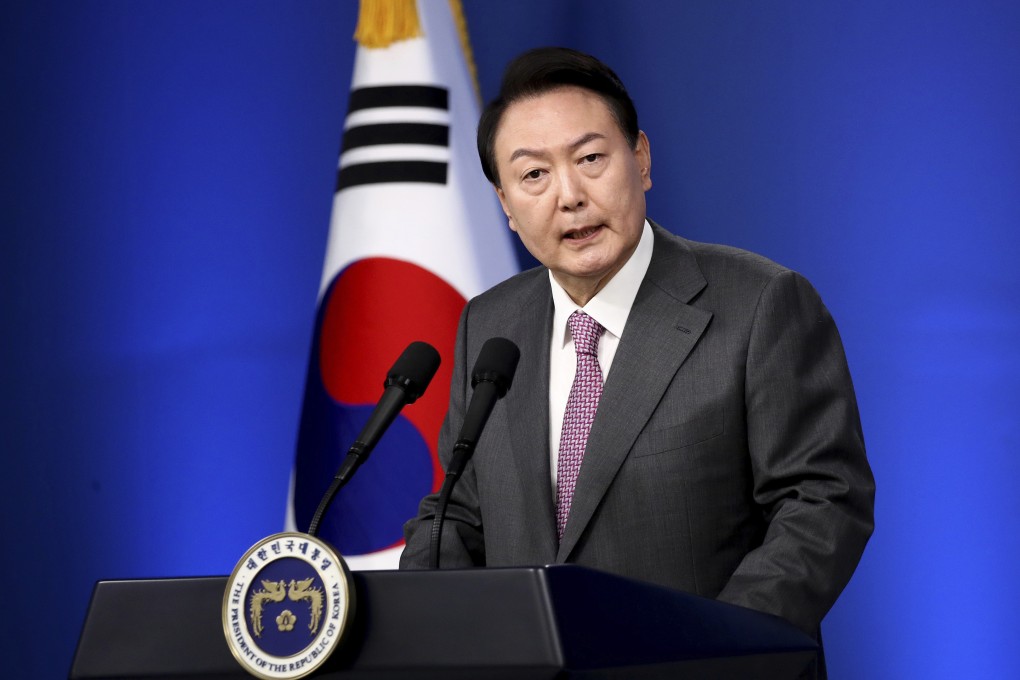Advertisement
South Korea’s Yoon Suk-yeol must appease both US and China during his first UN address, analysts say
- South Korean leader has shown a desire to reverse Seoul’s foreign policy that seemed timid towards China under his predecessor Moon Jae-in
- Beijing has been critical of South Korea hosting a US anti-missile system, and Seoul faces pressure from Washington to speak up on issues such as Taiwan
Reading Time:3 minutes
Why you can trust SCMP
3

South Korea’s conservative President Yoon Suk-yeol faces a delicate diplomatic test with a debut address at the United Nations on Tuesday as the mounting Sino-US rivalry makes Seoul’s balancing act between the superpowers increasingly more difficult, analysts said.
His trip to the UN will provide a welcome respite from domestic headaches stemming from allegations of nepotism, and controversies surrounding his high-profile wife Kim Kun-hee that have contributed to his dismal approval ratings.
Yoon, meanwhile has been critical of his liberal predecessor Moon Jae-in, accusing him of appeasing North Korea and being weak-kneed toward assertive China, vowing instead to step up alliances with the United States and Japan.
Advertisement
He has said his government will join forces with other like-minded countries in helping expand freedom, human rights and “rules-based order”, a description chosen by Washington on how the world should work to cope with China and Russia.
“It is expected that his speech at the UN will contain the tenor of working together with freedom-loving countries in expanding a global alliance for freedom,” a senior official of the presidential office told journalists on Thursday.
Advertisement
Advertisement
Select Voice
Select Speed
1.00x